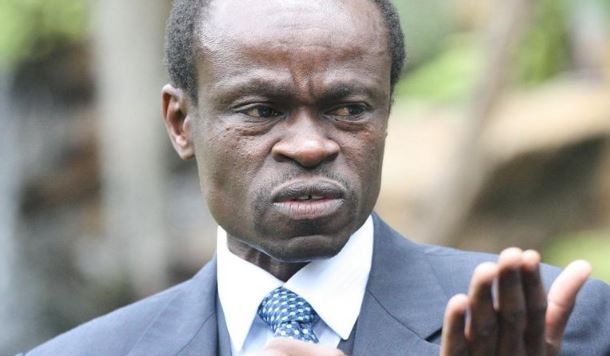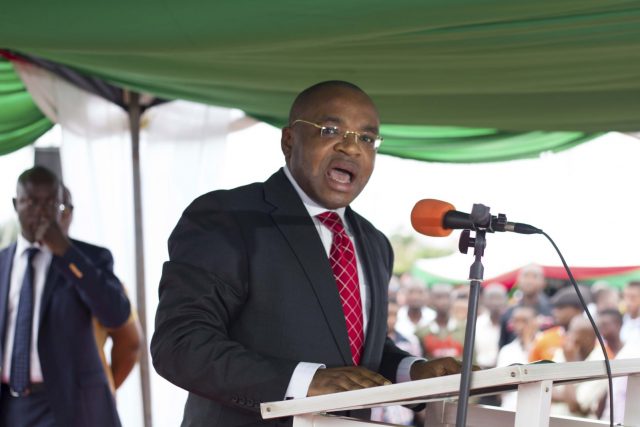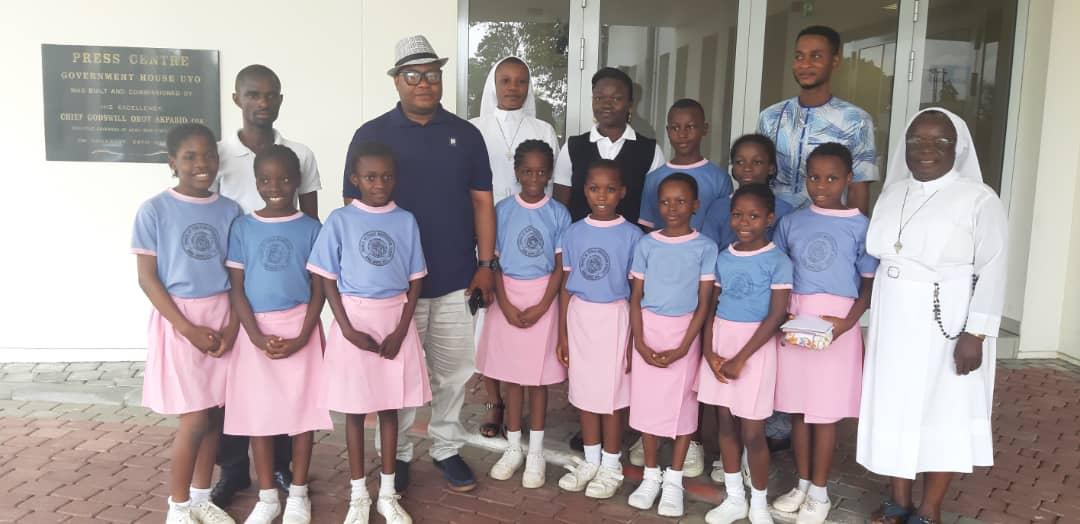BY B. N. ETIM
Last week, precisely on Thursday, November 21, eleven (11) bonafide members of the All Progressives Congress in Akwa Ibom state who are stakeholders of the party in their own right, published a full page message of congratulations to Governor Udom Emmanuel. The message which was duly signed by the APC members was in solidarity with Governor Udom Emmanuel’s Appeal Court victory.
The message particularly notes that “under the first four years of the Udom Emmanuel’s administration, Akwa Ibom State has experienced sufficient peace and tranquillity. The government and persons in charge of instruments of the State have not used same to hunt down the opposition or any person who disagreed with them politically. This has interestingly created a mutual and warm political relationship between members of different political parties across the state aside from fostering brotherliness and the spirit of sportsmanship.”
Earlier this month too, state chairmen of nine political parties under a group called “Forum of Uruan Political State Party Chairmen” we’re on a courtesy call to an appointee of Governor Udom Emmanuel, chairman of Akwa Ibom Roads and Other Infrastructure Maintenance Agency, (AKROIMA), Prince Godwin Ntuk Udeh, Ph.D. The forum went to reaffirm their support to Governor Udom Emmanuel, having earlier during the 2019 election declared support for Governor Udom Emmanuel’s second term. Also, within the month, the big one came. Governor Udom Emmanuel announced the appointment of a state caucus member of the APC, Elder Enefiok Ekefre, as his honorary special adviser on grassroots development. These experiences and the mutual political relationship between the ruling party and members of opposition political parties are rare in the state’s political history. Members of opposition parties in state have seen Governor Udom Emmanuel as their own, a man they can work with, a man they trust beyond political differences and affinities.
Advertisement
Since the creation of Akwa Ibom State in 1987 and the return to democracy in 1999, the state has been blessed with governors whose political prism, angled beyond party lines. From the reign of the first civilian governor of the state, late Obong Akpan Isemin till date, there has always been a call to opposition political parties to join the ruling party in leadership. This perhaps made the late former Governor Isemin came up with the concept -Ubom Noah- which means Akwa Ibom State is like Noah’s Ark that can accommodate everybody. The Isemin’s political orientation generated deep emotional synergy among people of different ethnic groups across the state, irrespective of political affiliation.
In 1999, after the rigorous electioneering that saw Obong Victor Attah as Governor of the state, on 29th May, in his inaugural speech titled, “Come Let’s Build Together”, Attah extended the olive branch to members of the opposition party to join hands with him to build Akwa Ibom State. A call that moved no new feet to corridor of power.
Obong Attah’s successor, Chief Godswill Akpabio came into the Hilltop Mansion with no mercy or call for opposition to join him in power. Even though he made attempt to settle his political differences with the man who put up a tough battle with him during his party primary, Dr. Udoma Bob Ekarika, is not enough to convince anybody that Akpabio had intention of running an inclusive government.
Advertisement
Governor Udom Emmanuel came up with political inclusion as one of his five points agenda. Some people had merely dismissed him on this, describing it a pretentious cloak to make him and his administration look good before the wide majority of Akwa Ibom people. When he took over the saddle of leadership, during his first term, he had called on all political players to bury the hatchet and see the state as one. In his second term, Governor Emmanuel opened his arms wide when he declared in his inauguration speech, that the “fleeting passion of politics” should not be allowed to “break the cords of our brotherhood.”
“As I said in my victory speech, I extend again my hands of fellowship and bond of friendship to my brothers and sisters on the opposite side of the political divide. I call on them to join me in building a State that we all, irrespective of political affiliations will be proud to call our home. We went to the polls as brothers and sisters and as the 6th President of the United States, Abraham Lincoln, said in his second inaugural speech on March 4th 1865, ‘We are not enemies, but friends. We must not be enemies. Though passion may have strained, it must not break our bonds of affection.”
This statement became signal for the unexpected and a watch word to his party.
On September 20, 2019 after Governorship Election Petition Tribunal’s ruling, the Peoples Democratic Party, PDP, urged the opposition parties to join hands with Governor Udom Emmanuel in developing both the human capacity and economic endowments of the state.
Advertisement
Obong Paul Ekpo who gave the reaction on behalf of his party said; “The PDP is not having problem with anyone as the state belongs to all. The decision is announced by messengers, the holy ones declare the verdict, so that the living may know that the Most High is sovereign over all kingdoms on earth and gives them to anyone he wishes and sets over them the lowliest of people.”
Governor Emmanuel did not put out a blanket call for opposition to respond but made a move by appointing a caucus member of the All Progressives Congress, Chief Enefiok Ekefre as Honourary Special Adviser. This singular act has placed the Governor as a statesman that believes in Akwa Ibom State project beyond party line. His action has communicated to the world that he is a governor for all not for a segment.
In post-modern world, meaningful political inclusion is perhaps the key engagement factor in peacebuilding. It goes without saying that the political participation of opposition parties is indispensable to their recognition and dignity. It also helps to promote civic engagement and active citizenship, and offers institutionalised avenues for addressing grievances and conflict issues to prevent frustration and potential violence, which is the reason the state has enjoyed peaceful ambience since the governor took over.
Governor Emmanuel’s call for collective building and development of the state, perhaps, warranted the recent visit of Forum of Uruan Political State Party Chairmen to the Board Chairman Akwa Ibom State Roads Maintenance and Other Infrastructure Agency, AKROIMA, Dr. Godwin Ntuk Udeh, wherein they pledged support for Governor Udom Emmanuel. The governor’s sincerity and willingness to carry people along may not be unconnected with the withdrawal of over 20 Governorship candidates of different political parties from the 2019 governorship race for him.
Advertisement
Research carried out by National Democratic Institute, NDI, shows that democracy is more likely to develop and endure when all segments of a society are free to participate and influence political outcomes without suffering bias or reprisal. If previous leaders had integrated sound opposition members into governance, today party affiliation would not have been parameter for appointment and participation in governance. With this inclusion, Akwa Ibom State will grow above partisan political adventures.
Advertisement





